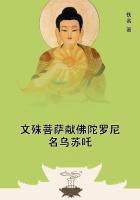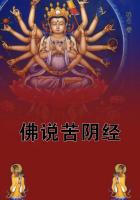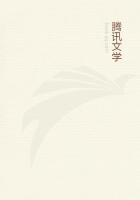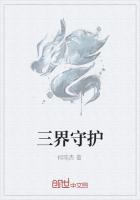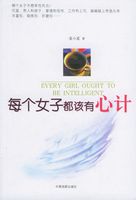The master, who hired workmen, was situated, in all points, exactly as the husbandman who sows the ground. The wages paid to his workmen were a kind of seed which he entrusted to them, and expected in a given time to bring forth fruit. Like the husbandman, he did not sow all his productive wealth; a part of it had been devoted to such buildings, or machines, or implements, as make labour more easy and productive; just in the way that a part of the husbandman's wealth was devoted to permanent works, destined to render the ground more fertile. It is thus that we see the different kinds of wealth springing up and separating, whilst each exerts a different influence on its own reproduction. The funds of consumption, such as domestic necessaries, do not any longer produce fruit, after each has secured them for his own use; fixed capital, such as improvement of the soil, canals of irrigation, and machinery, during the progress of its own slow consumption, co-operates with labour of which it augments the products; and, lastly, circulating capital, such as seed, wages, and raw materials, destined to be wrought, is consumed annually, or even more rapidly, in order to be again re-produced. It is essentially important to remark, that those three kinds of wealth are all equally advancing towards consumption. But the first when consumed is absolutely destroyed; for societies, as for individuals, it is merely an expense: whereas the second and third, after being consumed, are re-produced under a new form; and for societies, as for individuals, the consumption of them is a putting out to profit, or the circulation of capitals.
We shall better understand this movement of wealth, which, perhaps, it is difficult to follow, by fixing our observation on a single family engaged in the simplest of all speculations. A solitary farmer has reaped a hundred bags of corn, and is destitute of any market to which he can carry it. At all events, this corn must be consumed within the year, otherwise it will be worth nothing to the farmer. But he and his family may require only thirty bags of it; this is his expense: another thirty may be employed to support workmen engaged in felling the forests, or draining the marshes of the neighbourhood, to put them under culture; this will be converting thirty bags into fixed capital: and, finally, the remaining forty bags may be sown, and formed into a circulating capital, in place of the twenty bags sown the preceding year. The hundred are thus consumed; but seventy of them are put out to profit, they will reappear partly at the next harvest, partly at those which follow. By this means, in consuming he will have saved. Yet the limits of such an operation are easily discerned. If, this year, out of the hundred bags which he reaped, he could get no more than sixty eaten, who will eat the two hundred bags produced next year by the augmentation of his seed?*
Resuming these three sorts of wealth, which, as we have seen, become distinct in a private family, let us now consider each sort with regard to the whole nation, and see how the national revenue may arise from this division.
As the farmer required a primitive quantity of labour to be expended in cutting down the forests, and draining the marshes which he meant to cultivate; so, for every kind of enterprise, there is required a primitive quantity of labour to facilitate and augment the circulating capital. The ore cannot be obtained till the mine is opened; canals must be dug, machinery and mills must be constructed, before they can be used; manufactories must be built, and looms set up, before the wool, the hemp, or the silk can be weaved. This first advance is always accomplished by labour; this labour is always represented by wages; and these wages are always exchanged for necessaries of life, which the workmen consume in executing their task. Hence what we have called fixed capital, is a part of the annual consumption, transformed into durable establishments, calculated to increase the productive power of future labour. Such establishments themselves grow old, decay, and are slowly consumed in their turn, after having long contributed to augment the annual production.
As the farmer required seed, which, after being committed to the earth, was returned fivefold in harvest; so likewise, every undertaker of useful labour requires raw materials to work upon, and wages for his workmen, equivalent to the necessaries of life consumed by them in their labour. His operations thus begin with a consumption; and this is followed by a reproduction which should be more abundant, since it must be equivalent to the raw materials worked upon, so the necessaries of life consumed by his workmen in their labour, to the sum by which his machinery and all his fixed capitals have been deteriorated during the production, and lastly to the profit of all concerned in the labour, who have supported its fatigues solely in the hope of gaining by it. The farmer sowed twenty bags of corn to reap a hundred; the manufacturer will make a calculation nearly similar.
And as the farmer at harvest must recover not only a compensation for his seed, but likewise for all his labours, so the manufacturer must find in his production, not the raw materials only, but all the wages of his workmen, all the interests and profits of his fixed capital, with all the interests and profits of his circulating capital.
In the last place, the farmer may augment his seed every year; but he will not fail to recollect that, since his crops increase in the same necessaries, he is not sure of always finding men to eat them. The manufacturer, in like manner, devoting the savings of each year to increase his re-production, must recollect the necessity of finding purchasers and consumers for the increasing products of his establishment.


